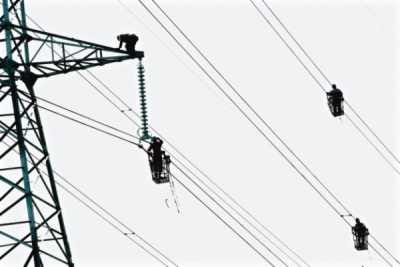Energy diversification planning: How it all went sour

Photo:Shafiq Islam/Driknews
The state of gas exploration and finding significant new gas reserves has run into a brick wall. Although no official statement has been made available either by Petrobangla or the government for that matter, the fabled 2 to 3 trillion cubic feet that was supposed to come out of Sunetra (Sunamganj Netrokona) structure is in all probability not materialising. Cairn sold its stake to Santos its off-shore operations after having found no significant new gas reserves in the Bay. Our own exploration efforts through Bangladesh Petroleum Exploration Company (BAPEX), with the exception of perhaps the 40 billion cubic feet find in Sundalpur has also nothing much to show for itself.
As stated by Md. Jamaluddin, former Managing Director (BAPEX) in a recent article in Prothom Alo, costs associated with exploration of a single gas well is Tk60-80crore. And the ratio of number of wells to successful gas finds used to be 3:1, i.e. for every three sites explored; there is the possibility of one successful find. Instead of actual exploration, BAPEX has been relying on three dimensional seismic surveys, which unfortunately is not a conclusive science. To base a national energy plan on a probable gas find of the scale Sunetra was portrayed to offer has proved suicidal, and as stated before, puts us back to square one. Forget about the cost, precious time has been wasted -- time that the nation can ill afford.
When the government took office in 2009, it was faced with a critical choice. Invest heavily in base load power stations (gas based) which were time consuming and expensive. It took the shortcut route to generate power through rental power contracts that consumed liquid fuel. The plan was to depend on rental and quick-rental power plants for the short term, while work would go on finding new sources of gas that could take the pressure off expensive power coming from the rental plants. The downsides to this “lifeblood†option that Bangladesh Power Development Board (BPDB) undertook have been well highlighted in the media over the last few years. BPDB sources indicate that it costs the government Tk.300 million per month to keep all oil-based power plants operational. Obviously, this is financially unsustainable. Today, authorities are forced to keep certain plants shut due to the huge daily expenditure associated with keeping them running. The end result needs no further explanation.
It is interesting to note that although the government has for many a year had plans to diversify its fuel sources, nothing much has happened on one crucial front, i.e. coal. And we are not talking about politically-charged Phulbari-Asia Energy debate here. In 2006, Petrobangla was given the license to develop Dighipara coal field for development. Today, it's 2013 and not a single activity has taken place, i.e. no survey, resource assessment, drilling, mine facility development, nothing at all in Dighipara. From the very outset, Petrobangla searched for a strategic partner who would make the necessary investment into a feasibility study. But, no guarantee was given by Petrobangla or the government for that matter that were any significant find was made, the contract would be awarded to the strategic partner. It is hardly surprising to find that Petrobangla did not manage to get any international party to come onboard as a strategic partner to move forward on Dighipara. Because under such conditions, no company in its right mind would make the substantial investments that would inevitably be required. Hence, for the 7th year in a row, PB is still sitting on that license so generously provided by the government and nothing has happened.
It is precisely because of this sort of half-baked planning coupled with near-zero prioritisation by policymakers to get a move on what is essentially national energy security, we find ourselves stuck in the quicksand. Time has come to take responsibility for actions, or the lack of it for that matter. Without power, the wheels of the economy will not move. Providing unrealistic pricing for expensive power will not be accepted by industry. Hence, all those thousands of megawatts generated by what are essentially short-term contracts and billions of dollars expended annually will have been for nothing.
For the benefit of the reader, this information may be useful that the government officially put together a master plan (Power System Master Plan, 2010; published in 2011) with assistance from JICA. The plan states that 50% of total generated power must come from coal. And majority part must come from domestic sources. It is little wonder that on a regular basis, we are confronted with big headlines in national media about the shortage of energy and all attributes associated to it. The average consumer must now face the full brunt of “talkers' plan, not doers'.â€
The writer is Assistant Editor, The Daily Star.

 For all latest news, follow The Daily Star's Google News channel.
For all latest news, follow The Daily Star's Google News channel. 



Comments